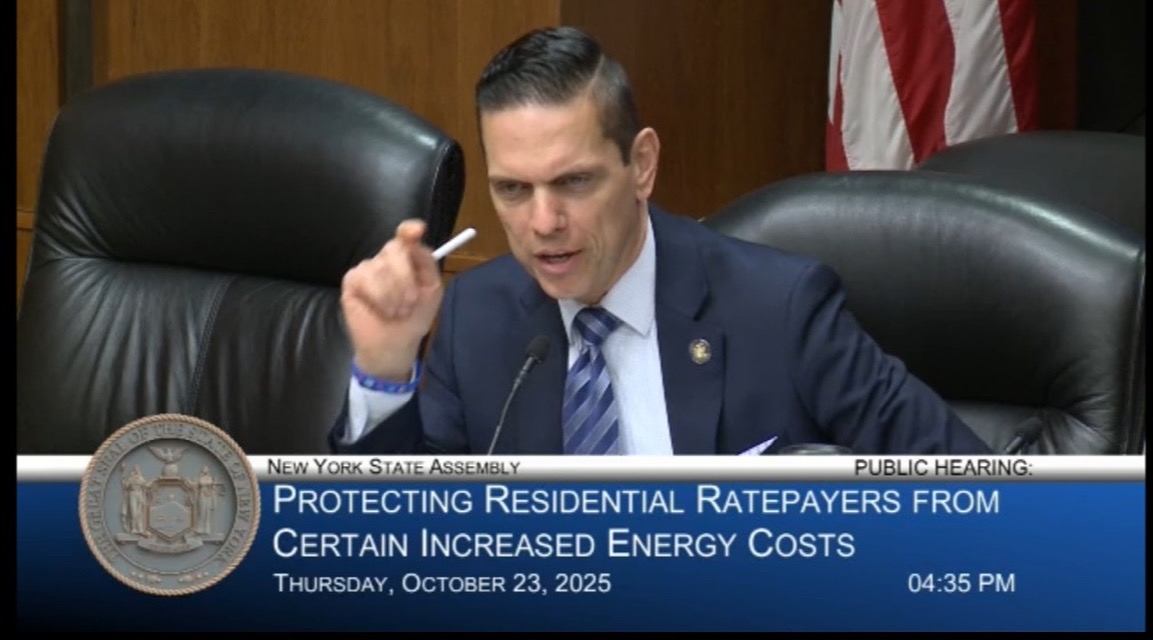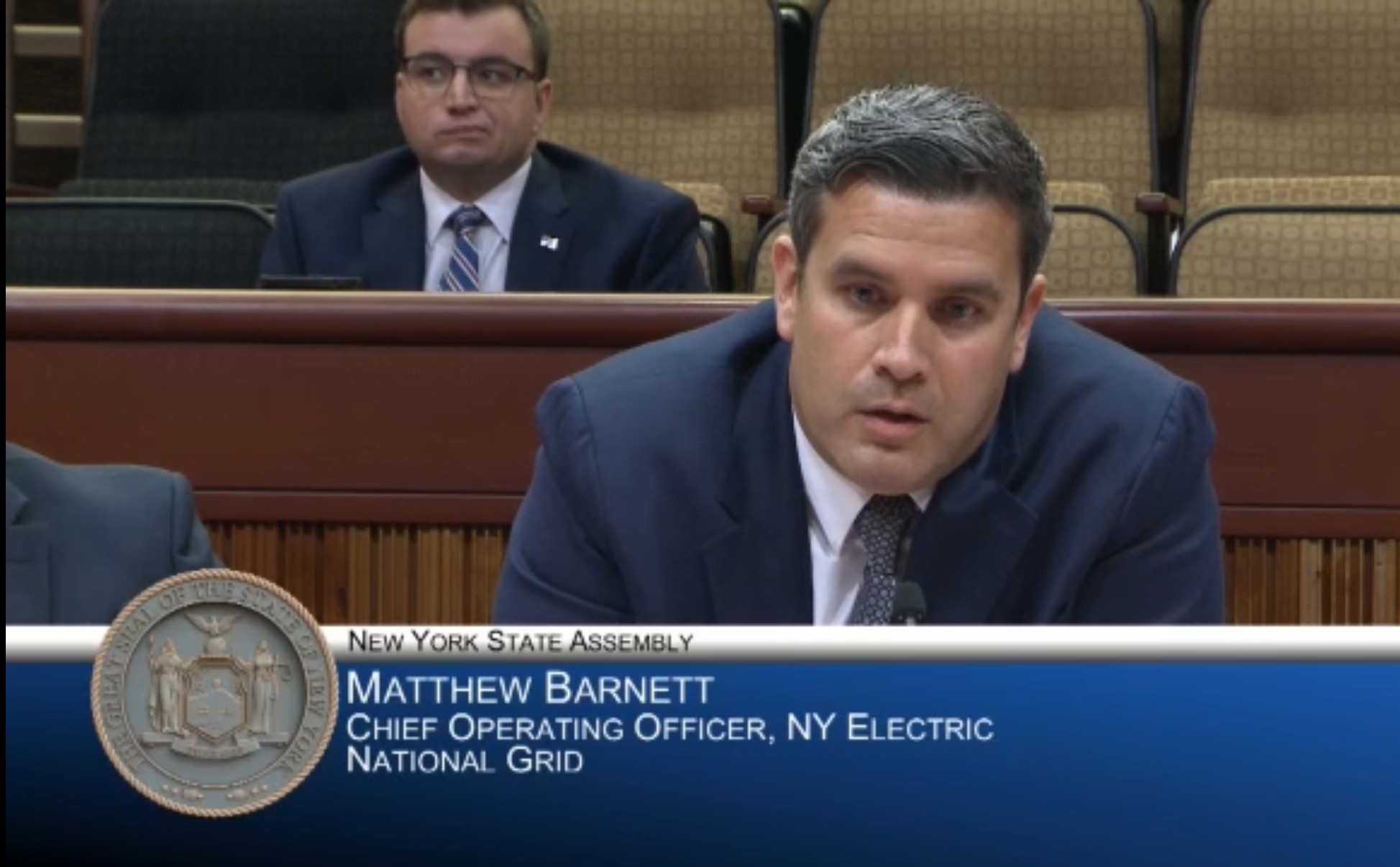Assemblyman Angelo Santabarbara Calls for Legislative Oversight After National Grid Fails to Answer Basic Questions on Rate Hikes
Assemblyman Angelo Santabarbara is renewing his call for legislative oversight of utility rate increases after National Grid officials failed to provide direct answers during this week’s Assembly Energy Committee hearing.
Assemblyman Santabarbara questioned company representatives about whether the Public Service Commission (PSC) has ever denied one of National Grid’s rate-increase requests – a straightforward question they could not answer. He also asked for their view on giving the Legislature a formal role in reviewing and approving rate hikes. Rather than address the issue directly, company officials praised the PSC’s existing process as “robust.”
“It’s no surprise they’re comfortable with the system – it keeps approving their rate hikes,” said Assemblyman Santabarbara. “Families and small businesses are the ones paying the price while these companies keep seeing their requests approved again and again. That has to change.”
National Grid acknowledged that its last PSC case involved thousands of information requests and multiple parties but offered no indication that the process has ever resulted in a denial or meaningful check on rate increases.
“When a utility company can’t point to a single time it’s been told ‘no,’ that says everything about how broken this system has become,” Assemblyman Santabarbara added. “The Public Service Commission isn’t holding them accountable – and it’s time the Legislature did.”
To restore balance and transparency, Santabarbara has introduced two measures:
- A7363 – The Utility Rate Hike Legislative Review Act — requiring the Legislature to review and publicly debate major utility rate increases before they take effect.
- A7364 – The Utility Profit Cap and Consumer Protection Act — placing reasonable limits on utility profits and ensuring any excess is returned to customers.
“This isn’t about stopping one rate hike,” said Santabarbara. “It’s about changing a system that keeps putting corporate profits ahead of New York families.”


